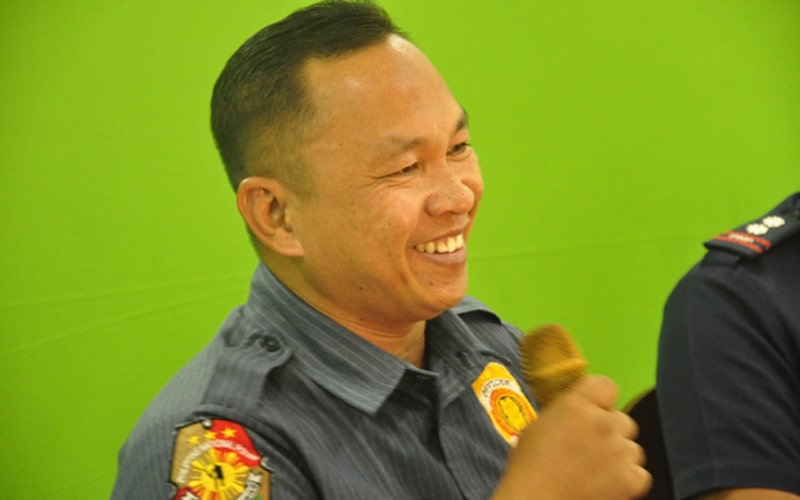
MUSLIM communities. Like mushrooms after a lightning storm, they are sprouting, but unlike the usual huddling stilt houses of light materials that tiptoe on the waters, their houses are more permanent.
They are in new and rising commercial centers; first in loose portable tarpaulin tents and dismantle-abled stalls with their ubiquitous dry goods from compact disks, to slippers to electronic devices and appliances.
And then, their portable stalls are now fixed, and their homes lie somewhere, not on stilts but in concrete homes like most homes in the community.
But, while many shiver in imposed fear having them in the community, police officials of Camp Francisco Dagohoy, Bohol Provincial Police Office assure, “they are far more peace-loving than some of us.”
For the unbelievers, the Salaam police is there as the government’s anchor engaged in these communities.
“There are now 14 Muslim communities here and another one is starting,” shares Police Corporal Jonald Avinido, during the weekly Camp Dagohoy police community affairs program billed as Strategic Information Broadcasting over the Internet and other Access (SIBIA).
And in each community, there is a police group that keeps the line hot to the community leaders.
This is the Salaam Police, a peace and anti-crime, anti-terror advocacy group that keeps the relations between Christians and Muslims here, civil.
Salaam, from the Arabic word of universal Muslim greeting Assalamu alaykum (Peace be upon you), is a peace advocacy group and is, for peace, so there is nothing to worry about the Salaam Police.
In the world news in the 2000s, Muslim were also unfortunately skipping in and out of the national news due to the news coverage of the centuries-old conflict between the Sunni and the Shiite rivalry, rooted from as to who between the factions, succeeds the Prophet after his death.
The conflict has caused broken international relations, left countries at war and many seeking refuge, spread out to find peace.
Unfortunately, however, some of those who slip out, continue the fight from other countries, to generate support to sustain the ongoing conflict.
The Philippines has been among those identified and suspected countries hosting Muslim populations, and unbeknown to their blood brothers, some refugees are dormant terror warriors.
Successive arrests of Muslims suspected of orchestrating terror attacks and bombings in the country led to meetings with the muslim community and Malacanang, which insisted that the anti-terrorism arrests were solid intelligence information and were not targeted on ethnic bias.
Not really intending to aggravate the situation, then President Gloria Macapagal-Arroyo ordered the organization of the Salaam Police.
“These are composed of Muslim and non-muslim officers and men assigned to counter-terror operations and liaise with Muslim communities for a better exchange of cultural understanding and intelligence information,” explained Avenido, the Salaam Police Advocacy Group (SPAG Bohol) Provincial coordinator.
Based at the BPPO Police Community Affairs and Development Unit (PCADU), the SPAG has its municipal units in town stations with muslim populations.
In short, SPAG are vital members of community active force multipliers in helping the PNP maintain the peace and order and in the implementation of various programs of the organization, as it also involves citizen counterparts in the muslim communities, he summed.
Of the 15 communities now in Bohol, eight are with their own advocacy groups helping the police in keeping their community crime and criminal free and insulating the community from the entry of suspected terrorists, according to Camp Dagohoy.
“Muslims in Bohol are now about 2,000 families spread out in Tagbilaran City, with the biggest population at over 1,000 families in four settlements in the Muslim Village, the Islamic Muslim Community, the Darussalam Muslim Community and the Unitop Muslim Community,” Avinido said.
And then, there is Jagna Muslim Community with Maranaws under Ali Ahkbar Marohum and Tausugs under Amalam Abbas; a total of about 500 families.
In Ubay, some 300 families are there, while the rest of the towns have a presence of Muslim Communities of small families are in Tubigon, Catigbian, Batuan, Talibon, Trinidad, Clarin, Baclayon and in Inabanga.
“We have them under the control of their leaders, who are our allies,” the police official who is also a Balik-Islam convert said.
While the muslims in the communities are also organized, there is a muslim police officer, who coordinates with the community and the force for a more efficient crime control, and anti-terror, considering that the Muslims are everywhere, they can also be good sources of valuable intelligence information.
Now, as more and more Muslim communities sprout, rest assured that there is a corresponding SPAG organized for one major function: keep the peace here and make Bohol terror-free, peaceful and progressive. (rahc/PIA-7/Bohol)

